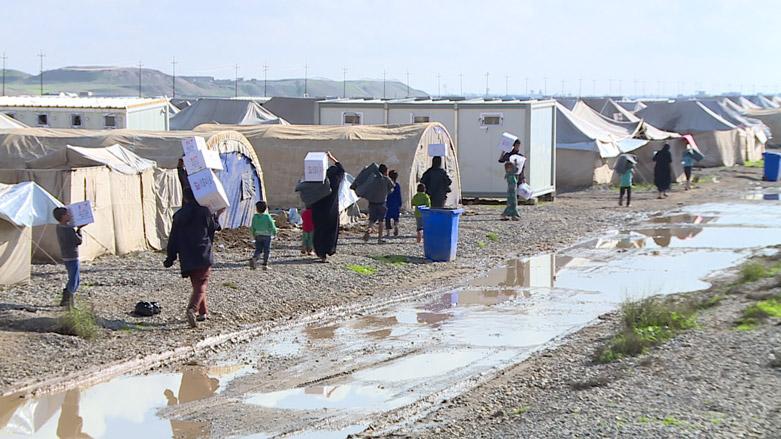Polish minister discusses IDP affairs in Kurdistan with senior Kurdish leaders

ERBIL (Kurdistan 24) – Poland’s Minister for Humanitarian Affairs, Beata Kempa, met with senior Kurdish leaders on Wednesday to discuss the humanitarian affairs of refugees and Internally Displaced Persons (IDPs) in the Kurdistan Region.
Kempa, who led a polish delegation, met with the incumbent Prime Minister of the semi-autonomous Kurdistan Region, Nechirvan Barzani. She commended the people of Kurdistan and the Kurdistan Regional Government (KRG) for hosting hundreds of thousands of IDPs and refugees who fled from the threat of the Islamic State (IS) in Iraq and Syria.

She expressed her country’s readiness to help the displaced people and underlined that further support from the international community was necessary in that regard, a statement from Barzani’s press office said.
Kempa also highlighted the co-existence and social harmony of different ethnic and religious groups in the Region, praising the KRG’s efforts.
Barzani briefly explained the Kurdistan Region’s role in defeating IS, and stressed that the KRG would continue to strengthen the social harmony and coexistence in the region, the statement continued.
The Kurdish PM hoped that Poland would lobby the European Union to support and improve the affairs of the IDPs in Kurdistan.
Following the 2014 emergence of IS in Iraq and Syria, about two million IDPs and refugees fled to the Kurdistan Region. Although their areas have been liberated from the extremist group, about 1.5 million IDPs and refugees continue to stay in the Kurdish region due to lack of security and basic services in their hometowns.
In a separate meeting, the Polish minister also met with Masrour Barzani, the Chancellor of the Kurdistan Region Security Council (KRSC) who has been nominated as prime minister to lead the new KRG cabinet.

“Chancellor Barzani praised the Poland formula in partnership with local organizations directing resources to grass root projects aimed at creating jobs, helping reconstruction and provisioning basic needs,” the KRSC press office said.
“He urged Minister Kempa to encourage the European Member States to do more to shoulder the burden with Kurdistan Region.”
Both also agreed on the importance to collect victim testimony and protect and document evidence with the aim to hold IS accountable for its crimes.
Editing by Karzan Sulaivany
